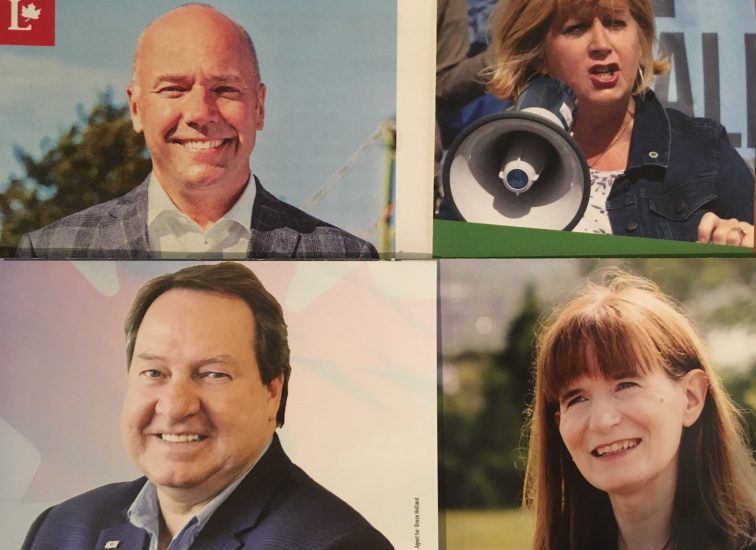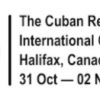
KJIPUJTUK (Halifax) – Campaigning for the federal elections kicked off just a few weeks ago and already things are off to a nasty start, with the spreading of anti-refugee misinformation by Conservative leader Andrew Scheer and the announcement that Maxime Bernier of the xenophobic and white nationalist People’s Party of Canada will be allowed to participate in the upcoming official leaders’ debates. Adding to that are recent photos which emerged showing Justin Trudeau in racist black and brownface. Shortly after, Elizabeth May revealed that a Green Party candidate had worn blackface on national TV.
Meanwhile, the NDP’s Jagmeet Singh, who is the first racialized leader of a federal party in the country, faces ongoing questions with regards to his prospects for success in the elections as a Sikh, including from members of his own party.
Already, we see racism and immigration emerging as key topics in this election and that includes discussions at the local level. At the September 12th “All Candidates Debate on Women’s Rights and Gender Equity” in Halifax, migrant justice was a key topic of discussion.
For years, the migrant justice movement has called for permanent status on arrival for migrant workers and an end to the harmful Canada-U.S. Safe Third Country Agreement (STCA), which prohibits most asylum-claims at Ports of Entry along the border because the U.S. is supposedly a safe country for refugees. The debate clarified candidate positions on these calls. Below are some highlights (in alphabetical order by the candidates’ last names). You can watch the full livestream of the debate here.
Andy Fillmore (Liberal) defended the Trudeau government’s decision to uphold the STCA. He stated: “We know that those seeking asylum are not afforded greater protection by making multiple asylum claims in multiple safe countries within … similar asylum systems. That’s just putting stress on the entire asylum system and slowing it down for everybody. I just wanted to touch on the safe third country part.”
This implies that Fillmore believes that the U.S. is a safe country for refugees, despite overwhelming evidence to the contrary, including modern-day concentration camps at the U.S.-Mexico border. Moreover, the STCA applies even if people haven’t sought asylum in the U.S., and have only transited through that country to make a refugee claim in Canada. Fillmore also blamed asylum-seekers themselves for long wait times, though a May report by Canada’s auditor general placed the responsibility squarely on the Liberals.
Under the STCA, people seeking asylum at the Canada-U.S. border are forced to cross irregularly to make a refugee claim. This can be a life or death situation, especially during the winter months. Some have suffered from severe frostbite leading to amputations, as well as hypothermia, and at least one person has died. During the debate, Fillmore failed to mention that his party is working to expand the STCA, closing some of the last options that asylum-seekers currently have. In June, they also ushered in sweeping changes to the Immigration and Refugee Protection Act through C-97, closing the door on even more refugee claimants.
Fillmore did not comment with respect to migrant workers.
Bruce Holland (Conservative) began his remarks on the topic of immigration by noting that he is “married to a Filipino immigrant woman,” in order to claim knowledge of immigrant experiences. He noted “there’s all kinds of weaknesses in our [immigration] system that need to be addressed,” but also indicated that “some [immigrants] don’t assimilate as well as some others and so they kind of just, they don’t use those [settlement] services or there’s not enough.” He returned to this idea that assimilation should be a goal for immigrants. Views like Holland’s foster intolerance and, in practice, cause harm to racialized communities. Let’s not forget that Canada’s policies and practices aimed at forcibly assimilating Indigenous peoples, which included residential schools and the 60s scoop, resulted in genocide.
Holland did not address the topic of migrant workers or the STCA. However, his party has indicated that they would also expand the STCA to get rid of the “loophole” which “allows some people to skip the line and avoid the queue.”
This suggests that asylum-seekers crossing irregularly are taking advantage of the system. However, it’s the system that’s treating them unfairly by severely limiting their right to seek asylum. Moreover, people who cross the border irregularly to seek asylum aren’t given an advantage over other refugee claimants (read this article debunking that Conservative fallacy).
Jo-Anne Roberts (Green) vowed to eliminate the Temporary Foreign Worker Program (TFWP), so “everyone who comes to this country to work has a path to permanent residency.”
In their 2015 platform, the Green Party argued that the TFWP had “grown out-of-control.” Rather than strengthening temporary migrant workers’ rights by ensuring that they have permanent residence, Green Party leader Elizabeth May recently indicated that they would increase the number of permanent economic migrants accepted by Canada each year. Given that Canada’s selection of immigrants through the “economic class” stream is highly restrictive, this move would shut out most racialized and low-wage temporary migrant workers.
Roberts also said that they’d end the STCA because “unfortunately if you’ve gone to the United States and discovered that the climate there is one that treats you unfairly, you cannot come to Canada legally as a refugee. That has to change.”
While doing away with the STCA is an important commitment, her framing implies that crossing the border at an official port of entry is the “legal” way to seek asylum in Canada, and that to not do so is illegal.
Under international and Canadian law, crossing the border irregularly (at an unofficial entry point) for the purposes of making a refugee claim is not illegal, as refugees have the right to flee persecution. However, people seeking asylum at the Canada-U.S. border should not be forced to cross irregularly to make a refugee claim, as is the case under the STCA. Instead of challenging the STCA by using language which risks stigmatizing refugees, the conversation should focus on the dignity, rights and well-being of asylum seekers.
Christine Saulnier (NDP) indicated that “We need to treat all our caregivers with respect and dignity, and provide them with status on arrival.” This commitment is a good first step. However, it’s important to ensure that all migrant workers have access to status on arrival, which does not appear to be a commitment in the NDP’s platform.
In December 2017, NDP leader Jagmeet Singh faced criticism from the Toronto-based group Justice for Migrant Workers for visiting Windsor-area greenhouses and appearing to “support an industry that’s based on exploitation.” After that incident, the party vowed to “put out a comprehensive policy plan that deals with migrant workers’ rights ahead of the 2019 election,” however, to date they have yet to do so.
Saulnier stated that “We do need to end … the Safe Third Country [Agreement]. You know, our country to the South is no longer a safe place for many and we need to take that into consideration as we move forward.”
This also is an important commitment, however, Saulnier’s comment implies that the reason the U.S. isn’t a safe place is solely because of Trump. While the threats faced by refugees in the U.S. have escalated under Trump, the U.S. was not a safe place for all refugees even before he came to power. In fact, since at least 2004, when the agreement came into effect, civil society groups have been calling for it to be scrapped on these grounds. Another equally important reason to scrap the STCA is that it violates refugee rights under the Canadian Charter of Rights and Freedoms, and thus goes against Canada’s Constitution. Whether Trump is in office or not, it’s clear that Canada should not be a signatory to the STCA.
In lead up to the upcoming elections, it’s imperative that we counter racist and xenophobic misinformation and policy propositions aimed at garnering votes. Knowing that harmful policies disproportionately impact the lives of vulnerable communities, including refugees and migrants, we must demand better, while of course recognizing the limitations of electoral politics.
Change does not begin nor end at the ballot box, and there’s so much more we can do. By signing the #UniteAgainstRacism pledge, for instance, you can get resources delivered to your inbox to directly challenge racist and anti-immigrant messages during the election. You can also join grassroots groups like No One Is Illegal – Halifax/K’jipuktuk, which are engaged in year-round work in solidarity with migrants and refugees.
Stacey Gomez is a migrant justice organizer with No One Is Illegal – Halifax/K’jipuktuk and active in the Latin American solidarity movement.
See also: News brief: Christine Saulnier wants to be Halifax’ next Member of Parliament
With a special thanks to our generous donors who make publication of the Nova Scotia Advocate possible.
Subscribe to the Nova Scotia Advocate weekly digest and never miss an article again. It’s free!



